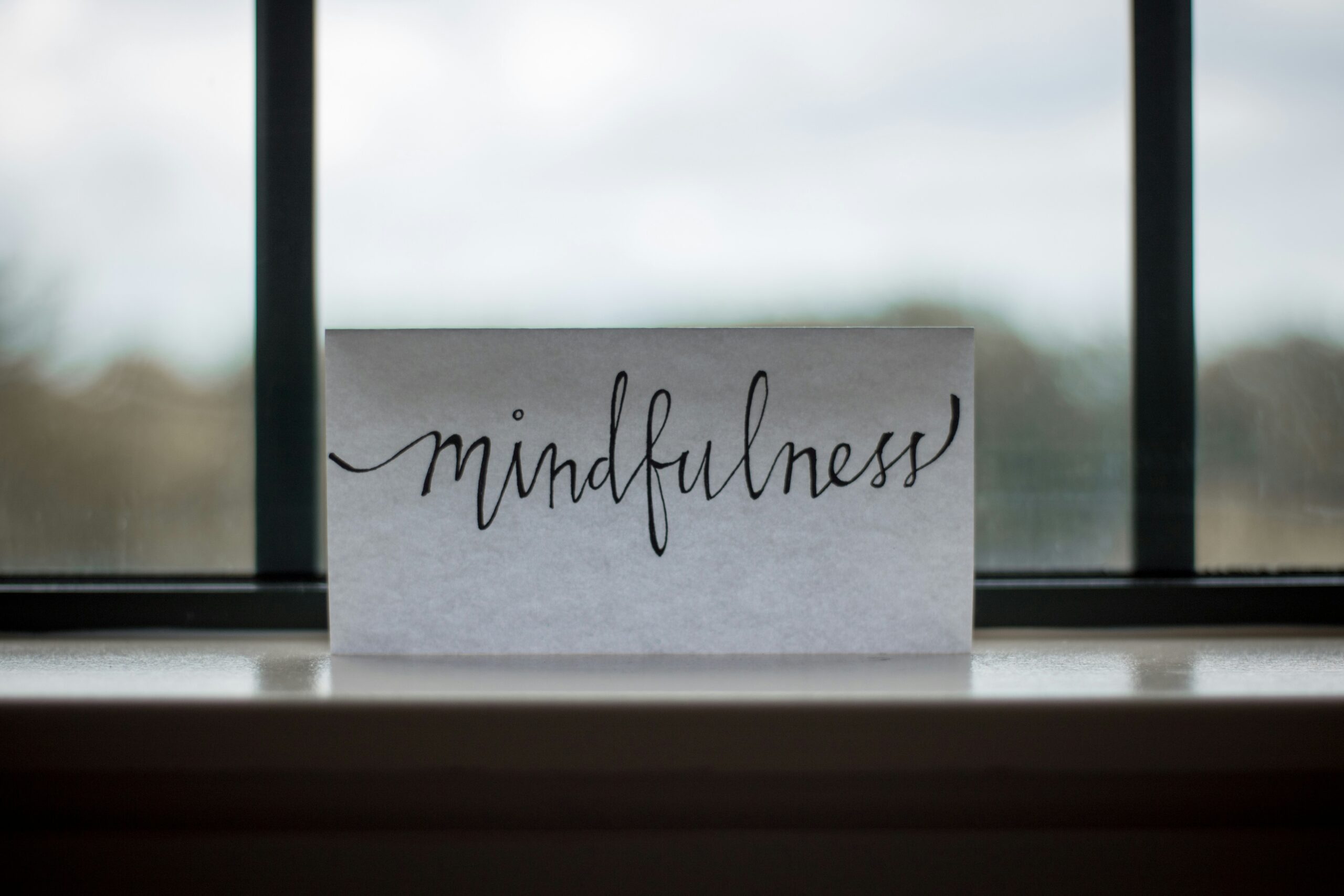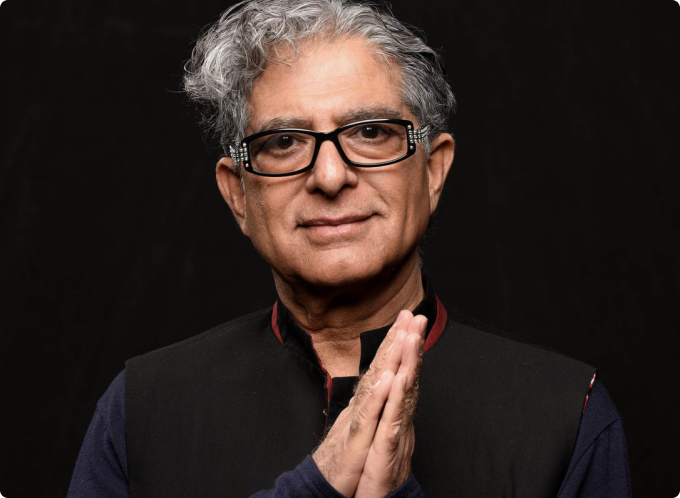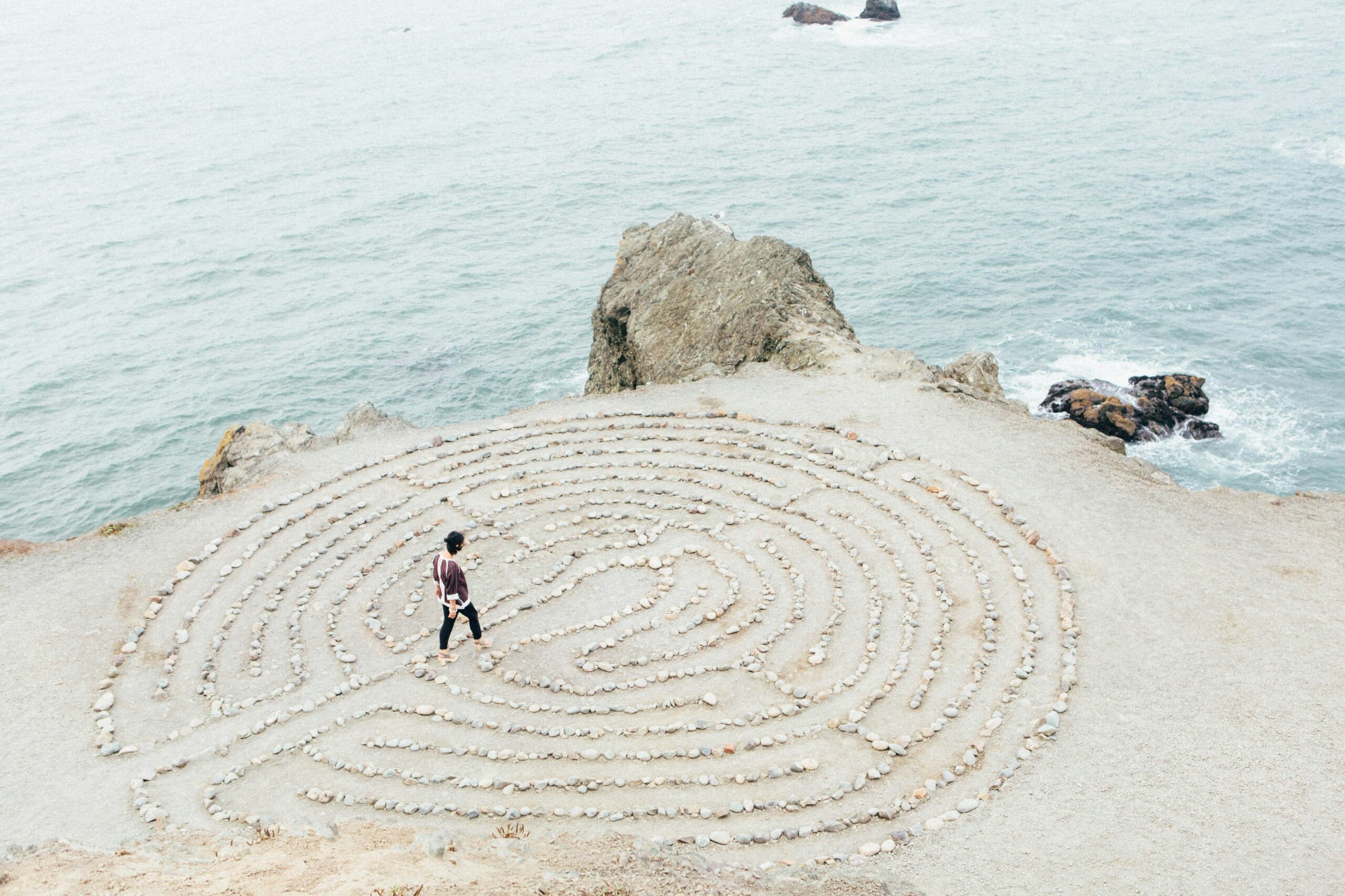Introduction to Deepak Chopra’s Meditation
Deepak Chopra, a prominent figure in the field of alternative medicine and spirituality, has significantly impacted the way people perceive and practice meditation. As a physician, author, and speaker, Chopra integrates his expertise in biology with spiritual wisdom, resulting in a holistic approach to personal well-being. His meditation practices are designed to promote not merely relaxation, but profound transformation, guiding individuals toward a balanced mind, body, and spirit.
Meditation, as championed by Chopra, is a key component of his teachings and a vital tool in contemporary wellness. In a fast-paced world where stress often dominates, meditation provides a sanctuary for individuals seeking clarity, peace, and inner strength. Chopra’s techniques emphasize the importance of establishing a harmonious connection among various facets of the self. By adopting these practices, individuals can experience enhanced self-awareness and emotional resilience.
Among his numerous contributions, Chopra’s guided meditations stand out as a practical implementation of his philosophies. They incorporate mindfulness, visualization, and deep breathing, creating a comprehensive framework that enables practitioners to delve deeper into their consciousness. The aim is always to foster a state of inner stillness, where healing and growth can occur. Understanding the relevance of meditation in today’s wellness culture can illuminate pathways for personal growth and self-discovery, encouraging individuals to explore the vast potential within.
Moreover, Chopra’s work has paved the way for the acceptance of meditation in mainstream health practices, affirming its benefits for mental and emotional health. The integration of mindfulness into everyday life can lead to significant improvements in overall well-being, making Chopra’s meditation practices essential for anyone interested in enhancing their quality of life.
What is the 21-Day Meditation Challenge?
The 21-Day Meditation Challenge, initiated by renowned author and wellness advocate Deepak Chopra, is a structured program designed to encourage participants to develop a consistent meditation practice over a three-week period. This initiative is grounded in the belief that forming a habit requires 21 days of continuous practice. Participants are guided through daily meditations that are thoughtfully curated to enhance their experience and foster personal growth.
Each day of the challenge typically features a new meditation theme, accompanied by guided audio sessions led by Chopra himself or other qualified instructors. These themes often encompass a variety of topics, such as mindfulness, compassion, abundance, and the pursuit of happiness, allowing participants to explore different facets of their consciousness. The meditative practices are designed not only to cultivate relaxation but also to encourage self-reflection and deeper awareness of one’s thoughts and emotions.
Over the course of the challenge, participants can expect to encounter both difficulties and triumphs as they establish a routine that integrates meditation into their daily lives. This experience is meant to be transformative, as participants often report a sense of clarity, enhanced emotional resilience, and improved overall well-being. The commitment to meditating for 21 consecutive days fosters accountability and promotes a supportive community, as many join online forum discussions or local groups to share their experiences.
By participating in the 21-Day Meditation Challenge, individuals are given the opportunity to cultivate a more profound understanding of themselves while reaping the numerous mental and physical benefits associated with regular meditation practice. As the challenge progresses, many find that their ability to remain present and mindful in everyday life is significantly enhanced, leading to lasting positive changes beyond the three-week experience.
The Benefits of Daily Meditation
Daily meditation offers a plethora of benefits that can transform various aspects of one’s life. As elaborated by Deepak Chopra, meditation serves as a tool for achieving mental clarity, emotional balance, and enhanced physical health. One notable mental benefit is the significant reduction in stress levels. Numerous studies have indicated that consistent meditation practice can lead to lower cortisol levels, the hormone primarily associated with stress. By cultivating mindfulness and focusing on the present, individuals often report feeling more relaxed and less burdened by daily anxieties.
In addition to stress reduction, meditation is known to improve focus and clarity. Research suggests that a daily practice can enhance cognitive functions such as attention span and memory retention. Individuals who meditate regularly often find that they are better equipped to handle complex tasks, thanks to improved cognitive agility. Moreover, meditation can promote emotional healing. Engaging in this practice allows for introspection, which can lead to greater emotional awareness. This heightened awareness helps individuals recognize and process their feelings, fostering resilience and emotional strength.
Furthermore, the physical health benefits associated with meditation are substantive. Studies have linked regular meditation with lower blood pressure, improved immune function, and even enhanced sleep quality. Personal testimonials widely support these findings, with many individuals sharing their experiences of improved overall health as a result of daily meditation. The cumulative effects of these benefits underscore the importance of incorporating meditation into daily routines. As one embarks on the journey of daily meditation, the potential for a more balanced, healthier, and fulfilling life becomes increasingly attainable.
Setting Up Your Meditation Space
Creating an ideal meditation space is essential for cultivating a practice that encourages mindfulness and personal growth. When setting up your meditation area, consider the importance of a distraction-free environment. This allows you to focus solely on your meditation, enhancing your experience. Choose a location in your home that is quiet and away from daily activities—this could be a spare room, a corner in your bedroom, or even a patio if you prefer the outdoors. The key is to find a place that feels serene and inviting.
Once you have identified the right location, consider the physical comfort of your meditation space. Incorporating cushions or a meditation mat can significantly enhance your comfort during your practice. An ergonomic setup ensures that you can maintain focus on your breath rather than distractions caused by physical discomfort. Additionally, creating a comfortable seating arrangement helps to keep the mind clear and alert, thereby deepening your meditation experience.
To further enhance the atmosphere, consider adding personal touches such as candles, essential oils, or calming music. Soft, ambient sounds can provide a soothing backdrop that encourages relaxation, while candles can create a warm, inviting glow, contributing to an overall sense of tranquility. Essential oils like lavender or sandalwood can promote relaxation, serving as an additional sensory element in your meditation space.
Incorporating personal elements such as meaningful objects, photographs, or crystals can help create an emotional connection to your meditation practice. These items can serve as reminders of your commitments to mindfulness and self-discovery. By taking the time to thoughtfully plan and organize your meditation space, you will foster an environment that supports your journey into deeper reflection and transformation.
Daily Meditation Practices in the Challenge
The 21-Day Deepak Chopra Meditation Challenge incorporates a variety of meditation styles designed to enhance well-being and promote personal transformation. Each practice has unique attributes that cater to different preferences and experiences, making it accessible for individuals at all levels. Among the primary methods included are mindfulness meditation, mantra meditation, guided imagery, and visualization techniques.
Mindfulness meditation encourages individuals to pay attention to the present moment, acknowledging thoughts, feelings, and bodily sensations without judgment. This practice fosters a non-reactive awareness that can lead to greater emotional regulation and stress reduction. Practitioners are encouraged to find a quiet space, close their eyes, and focus on their breath, allowing thoughts to drift by while gently redirecting their attention back to their inhalations and exhalations.
Mantra meditation involves the repetition of a specific sound, word, or phrase to help center the mind and cultivate a deep sense of inner peace. This technique serves as a tool for concentration, helping to dissolve distractions and enhance spiritual connection. Participants are guided to select a mantra that resonates with them and repeat it silently, allowing the vibrational quality of the words to facilitate deeper meditation states.
Guided imagery immerses participants in detailed visualizations, employing the power of imagination to create positive mental images that foster relaxation and rejuvenation. During these sessions, Chopra leads practitioners through vibrant scenes or settings that evoke feelings of safety and joy, encouraging deep emotional release.
Visualization is a complementary technique that involves creating an internal picture of the desired outcome, whether it be healing, achieving goals, or fostering emotional balance. By maintaining a clear vision and aligning emotions with these aspirations, individuals can amplify their intentions and create a pathway toward actualization.
To maximize the benefits of these exercises, practitioners are advised to cultivate consistency, set aside dedicated time for meditation, and maintain an open mind. Regular engagement with these varied practices can significantly enhance one’s emotional well-being, clarity of thought, and overall sense of self. Through this diverse approach, participants are empowered to transform their lives within the framework of the 21-Day Challenge.
Overcoming Challenges During Meditation
Meditation is a transformative practice that can significantly enhance one’s mental clarity and emotional well-being. However, many practitioners encounter various challenges that can hinder their progress. Some common obstacles include a wandering mind, physical discomfort, and constraints related to time management. Recognizing these hurdles is the first step toward overcoming them and promoting a sustained meditation practice.
A wandering mind is perhaps the most prevalent challenge faced by individuals during their meditation journey. Thoughts about daily life, upcoming tasks, or personal worries can easily intrude, diverting attention away from the intended focus. To cultivate a more centered state, it is beneficial to adopt grounding techniques, such as focusing on one’s breath or using guided meditations. Also, acknowledging these thoughts rather than resisting them can lead to a more peaceful meditative state. When practitioners gently return their focus to their breath or mantra, they reinforce their ability to concentrate.
Physical discomfort can also derail meditation efforts. Whether it is discomfort from sitting for an extended period or tension in the body, these physical sensations can make it difficult to achieve a tranquil mindset. To address this issue, practitioners should explore different postures suitable for meditation, or consider utilizing cushions and supportive seating. Regular stretching or yoga can enhance flexibility and comfort, making it easier to engage in meditation without distraction from the body.
Lastly, time constraints often challenge the consistency necessary for a successful meditation practice. In today’s fast-paced environment, carving out time may seem daunting. To combat this, individuals can start with short, manageable sessions and gradually increase them as they become more comfortable. Setting reminders and designating a specific time daily for meditation fosters an established routine, ensuring meditation becomes a regular aspect of life. By implementing these strategies, practitioners can overcome the common obstacles of meditation and enjoy the profound benefits it brings.
The Role of Intention in Meditation
Intention is a fundamental component of meditation that serves to channel the mind’s focus and enhance the overall experience. In the realm of meditation, setting a clear intention is akin to establishing a personal roadmap for one’s journey. It allows individuals to approach their practice with purpose, promoting deeper engagement and awareness throughout their sessions. When practitioners enter a state of meditation with a defined intention, they are more likely to experience profound insights and transformations.
The act of setting intentions adds a layer of clarity, enabling meditators to concentrate on specific goals during their practice. For instance, one might set an intention to cultivate feelings of compassion, heal emotional wounds, or develop a greater sense of gratitude. By articulating such desires before commencing meditation, individuals create a mental framework that maximizes the potential benefits of their practice. These intentions not only guide the meditator but also infuse the session with a sense of purpose that can be incredibly motivating.
Personal stories abound regarding the successful integration of intentions into meditation. For example, one individual may have approached meditation with the intention of reducing anxiety. Through consistent practice, they found that this focus allowed them to recognize and address underlying sources of stress more effectively. Another individual may have aimed to enhance self-love, leading to substantial improvements in self-esteem and interpersonal relationships. These examples illustrate how specific intentions can influence meditation outcomes and encourage the cultivation of positive changes in one’s life.
Incorporating clarity and purpose in meditation not only amplifies the experience but also helps to maintain motivation and commitment to the practice. Ultimately, the role of intention in meditation can significantly enhance personal growth and transformation, making it an essential aspect of any meditative journey.
Integrating Meditation into Daily Life
Incorporating meditation into a busy lifestyle may seem challenging, especially after completing the transformative 21-Day Chopra Meditation Experience. However, with practical strategies, one can seamlessly integrate meditation into daily routines, enhancing overall well-being and mindfulness. Establishing short meditation sessions is a valuable approach for those with time constraints. Even five to ten minutes of focused breathing can provide significant benefits. Consider scheduling these brief sessions in the morning or during breaks throughout the day. Utilizing smartphone applications can also facilitate this practice by offering guided meditations tailored to varying lengths.
Mindfulness is another effective method to weave meditation into daily life. This practice encourages individuals to remain present and aware in their actions, transforming mundane tasks into moments of meditation. For example, while walking, one can focus on the sensation of their feet on the ground or the rhythmic sound of their breath. Similarly, during meals, one can fully engage with the flavors and textures, promoting an enriching experience that reinforces mindfulness. By developing such habits, individuals can cultivate a meditative mindset without needing dedicated time slots.
Maintaining momentum post-challenge is crucial for reaping the long-term benefits of meditation. Establishing a consistent practice by creating a specific time and space for meditation can enhance dedication. Consider joining a meditation group or community, which provides accountability and encouragement. Additionally, keeping a meditation journal can serve as a reflective tool, allowing individuals to track their experiences and thoughts throughout their journey. This practice reinforces commitment and provides insights into personal growth. By following these strategies, anyone can successfully integrate meditation into their busy lives, ensuring that the peace discovered during the 21-Day Challenge becomes a permanent part of their life.
Success Stories and Testimonials
Many participants in Deepak Chopra’s 21-Day Meditation Challenge have experienced profound transformations, reshaping not only their mental landscapes but also their daily lives. One participant, Sarah, shared her journey of overcoming anxiety through the practice of meditation. She noted that what began as a simple effort to find tranquility evolved into a powerful tool for managing her thoughts and feelings. Within just a few days, she reported significant decreases in her anxiety levels, attributing this newfound peace to her commitment to the meditation challenge.
Another inspiring story comes from James, who initially joined the program out of curiosity. What he discovered was a deeper connection to himself and his surroundings. After completing the challenge, James expressed how meditation helped him cultivate gratitude, changing his outlook on life. He described waking up each day with a renewed sense of purpose, emphasizing how the 21-day structure provided the discipline he needed to integrate mindfulness into his routine.
Participants often highlight unexpected benefits they gain from the challenge, such as improved relationships and heightened creativity. For instance, Lisa found that as she learned to meditate, she was better able to engage with her family, leading to resolved conflicts and deeper conversations. Her testimony illustrates that meditation can foster not only personal growth but also enhance interpersonal dynamics, making everyday interactions more fulfilling.
Collectively, these success stories underscore the transformative power of meditation in just a few weeks. Each individual journey highlights the potential for change—change that resonates deeply and serves as a testament to the ripple effect of mindfulness in everyday life. As individuals reflect on their experiences, they inspire others to embark on their own journey of self-discovery through Deepak Chopra’s meditation practices.

We share information about current trends and stories of people all around the world.



